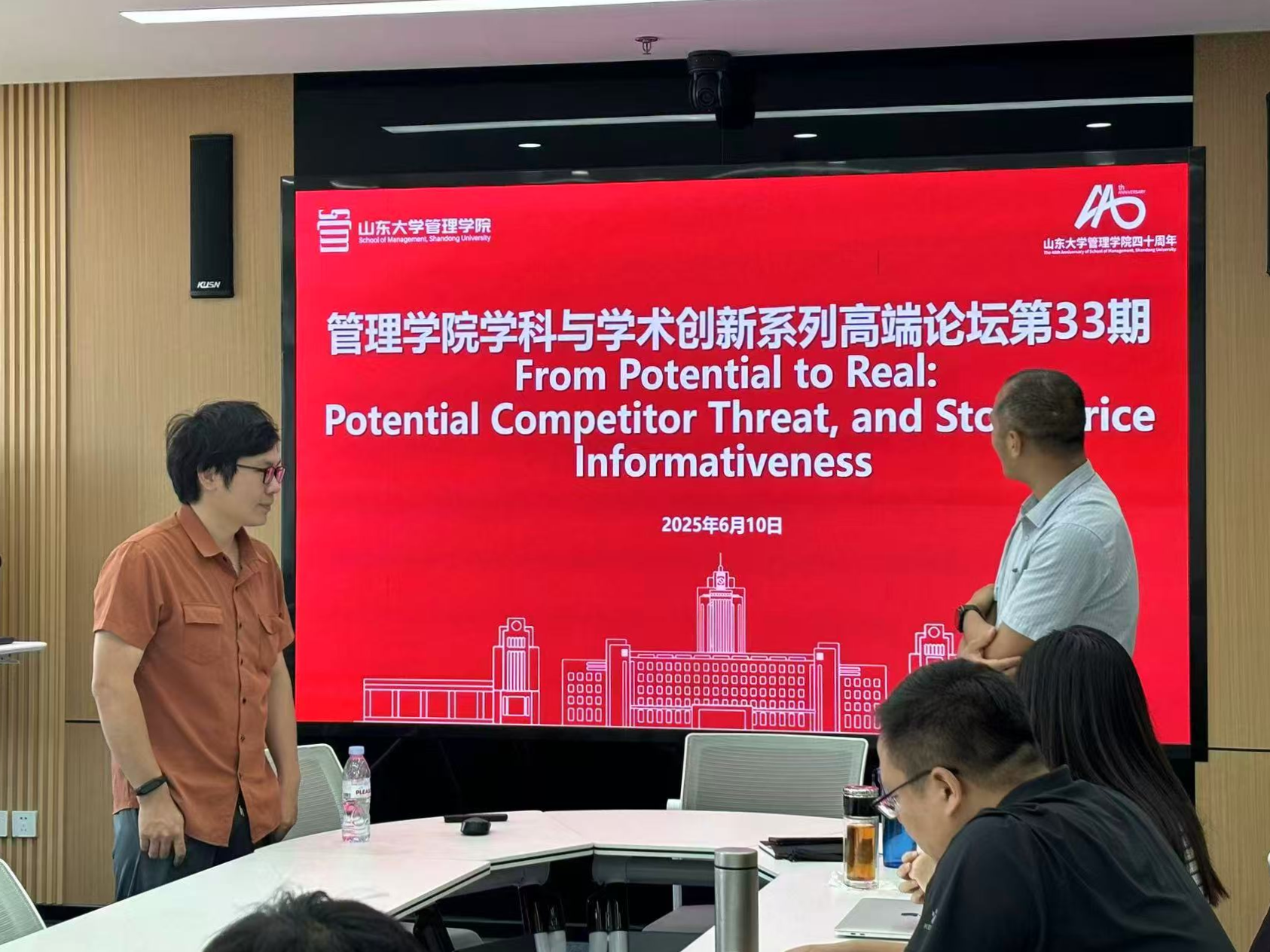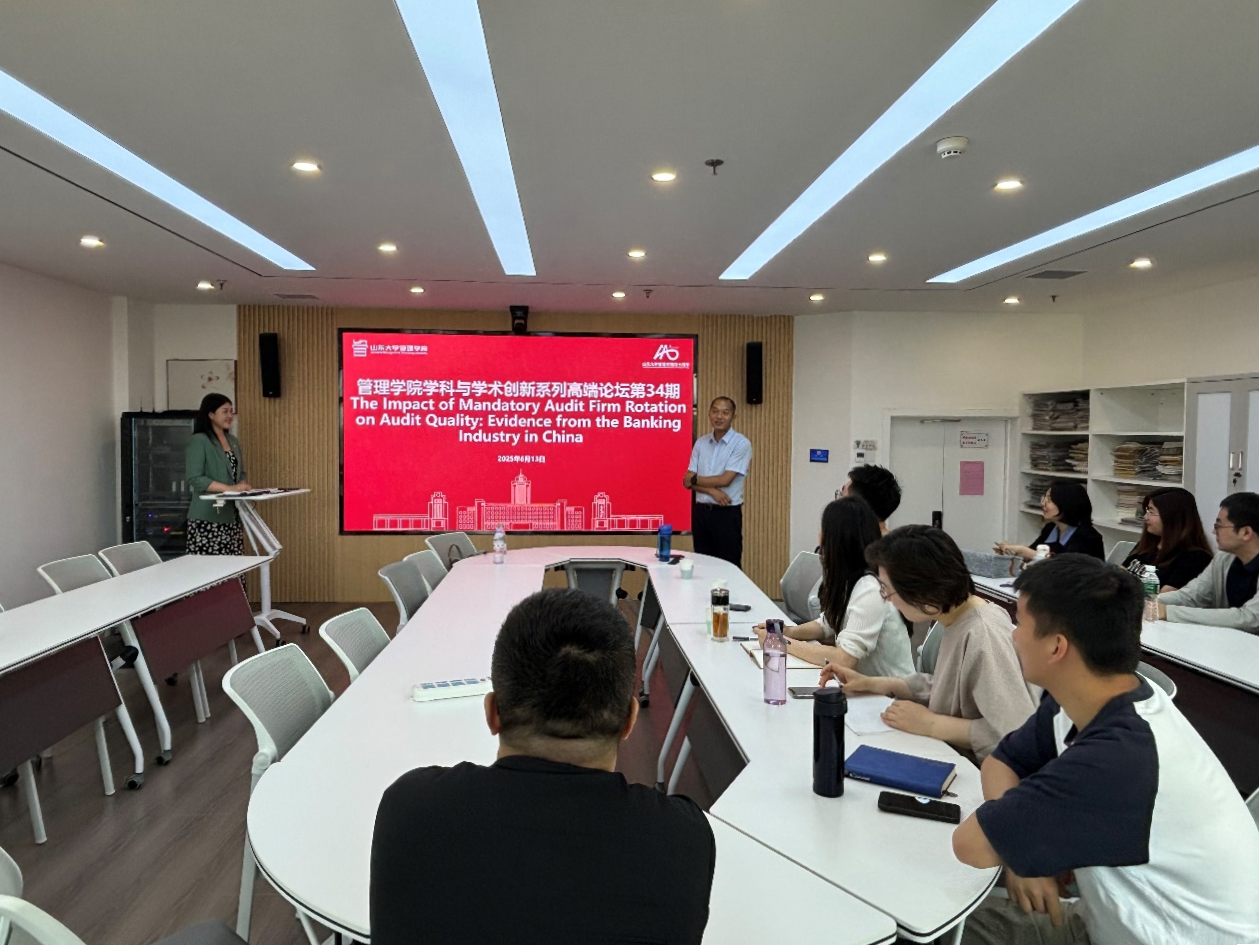To strengthen academic ties with higher education institutions in the Guangdong-Hong Kong-Macao Greater Bay Area and foster scholarly exchange, Associate Professor Li Weiping from the City University of Macau and Assistant Professor Yu Shuangchen from the University of Macau visited the School of Management at Shandong University on June 10 and 13 respectively. They delivered academic presentations entitled: "From Potential to Real: Potential Competitor Threat and Stock Price Informativeness","The Impact of Mandatory Audit Firm Rotation on Audit Quality: Evidence from the Banking Industry in China". These lectures were part of the Premier Forum Series on Disciplinary and Academic Innovation hosted by the School of Management. Early-career faculty members and graduate students (both master's and doctoral candidates) attended the events.

Li Weiping pointed out that the market access negative list system has relaxed restrictions on business entry, which is likely to affect the potential competitive threats faced by incumbent firms and, in turn, influence the decision-making behavior of capital market investors. However, existing research has paid insufficient attention to this issue. He believes that policy effect evaluations based on institutional changes are receiving increasing attention, and the various institutional reforms introduced by the Chinese government in areas such as capital markets and administrative management are gradually becoming important research topics. This provides abundant scenarios for relevant studies in the fields of finance, accounting, and economics. He then gave a detailed presentation on the research framework, sample selection, variable construction, empirical design, mechanism testing, and contributions of the paper. He also discussed the paper’s alternative explanations and structural layout with the faculty and students in attendance.

Yu Shuangchen pointed out that the mandatory audit firm rotation policy, designed to safeguard audit independence, may have unintended economic consequences for the audit quality of micro-level business entities. This is particularly relevant for the banking industry, which involves more complex operations and a greater reliance on industry-specific expertise. Therefore, the impact of mandatory audit firm rotation on the audit quality of banking clients deserves in-depth discussion, yet current research on this topic remains insufficient. She emphasized that the unique characteristics of the banking industry, along with its practical importance in providing financing to micro-level entities, result in distinct regulatory intensity, frequency, and objectives. As such, exploring the banking industry within the context of China’s institutional environment constitutes an important research direction and topic. She then gave a detailed presentation on the motivation of the study, variable construction and validity testing, as well as empirical findings. In addition, she engaged in discussions with attending faculty and students on research areas such as blockchain and digital currencies.
This lecture series broadened the perspectives of attending faculty and students on cutting-edge research topics such as market access institutional reforms and mandatory audit firm rotation. It not only offered insights and exploration directions related to capital markets and audit quality, but also helped strengthen academic connections between the School’s faculty and students and scholars from universities in the Guangdong-Hong Kong-Macao Greater Bay Area.